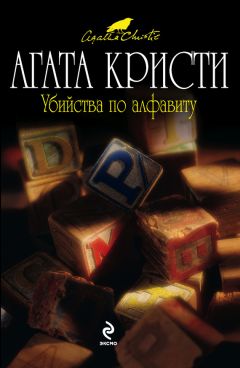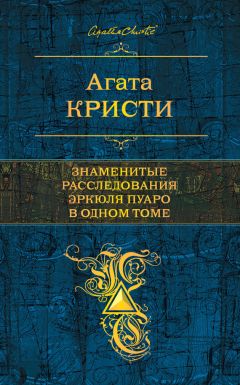Agatha Christie - Английский язык с Агатой Кристи. Убийства по алфавиту
"It's the usual course," said Japp (это обычный ход /вещей/). "I suppose (я полагаю) young Lucas thought (молодой Лукас думал) he might rush it through (что он, вероятно, сможет быстро провести это /дело/; to rush — мчаться; выполнять слишком поспешно). He's a trier (он из тех, кто всегда старается взять нахрапом; trier — человек, делающий все, что в его силах; to try — пробовать, стараться, пытаться), I will say (я скажу). Insanity's the only defence possible (невменяемость является единственной возможной защитой)."
Poirot shrugged his shoulders (Пуаро пожал плечами). "With insanity there can be no acquittal (с невменяемостью там не может быть никакого оправдания). Imprisonment during His Majesty's pleasure[44] is hardly preferable to death (бессрочное заключение: «заключение пока угодно Его Величеству» является едва ли предпочтительнее смерти)."
trial [ˈtraɪǝl], trier [ˈtraɪǝ], acquittal [ǝkˈwɪtl]
"Committed for trial," said Japp. "So that's that."
"Isn't it unusual," I asked, "for a defence to be offered at this stage? I thought prisoners always reserved their defence."
"It's the usual course," said Japp. "I suppose young Lucas thought he might rush it through. He's a trier, I will say. Insanity's the only defence possible."
Poirot shrugged his shoulders. "With insanity there can be no acquittal. Imprisonment during His Majesty's pleasure is hardly preferable to death."
"I suppose (я полагаю) Lucas thought there was a chance," said Japp (Лукас думал, что тут есть шанс). "With a first-class alibi for the Bexhill murder (с первоклассным алиби для бексхиллского убийства), the whole case might be weakened (все дело могло быть ослаблено). I don't think (я не думаю) he realized how strong our case is (что он понимает, как сильно наше дело). Anyway Lucas goes in for originality (в любом случае Лукас любит оригинальничать: «Лукас увлекается оригинальностью»; to go in for — заниматься, увлекаться). He's a young man (он молодой человек), and he wanted to hit the public eye (и он хотел поразить публику)."
Poirot turned to Thompson (Пуаро повернулся к Томпсону). "What's your opinion, doctor (ваше мнение, доктор)?"
"Of Cust (о Касте)? Upon my soul (честное слово: «/клянусь/ моей душой»), I don't know what to say (я не знаю, что сказать). He's playing the sane man remarkably well (он играет нормального человека удивительно хорошо). He's an epileptic (он эпилептик), of course (конечно)."
"What an amazing denouement that was," I said (какая это была поразительная развязка).
strong [strɔŋ], epileptic [ˌepɪˈleptɪk], denouement [deɪˈnu:mɑ:ŋ]
"I suppose Lucas thought there was a chance," said Japp. "With a first-class alibi for the Bexhill murder, the whole case might be weakened. I don't think he realized how strong our case is. Anyway Lucas goes in for originality. He's a young man, and he wanted to hit the public eye."
Poirot turned to Thompson. "What's your opinion, doctor?"
"Of Cust? Upon my soul, I don't know what to say. He's playing the sane man remarkably well. He's an epileptic, of course."
"What an amazing denouement that was," I said.
"His falling into the Andover police station in a fit (/то, что/ он ввалился в полицейский участок в Эндовере в припадке)? Yes — it was a fitting dramatic curtain to the drama (это был подходящий драматический занавес для этой драмы). A.B.C. had always timed his effects well (Эй-би-си всегда хорошо расчитывал свои эффекты)."
"Is it possible to commit a crime and be unaware of it?" I asked (возможно ли совершить преступление и не осознавать этого?).
"His denials seem to have a ring of truth in them (его отрицания, кажется, звучат правдиво: «его отрицания, кажется, имеют отзвуки правды в них»; to deny — отрицать; ring — звон; отголосок; to ring — звенеть; звучать)."
Dr. Thompson smiled a little (доктор Томпсон слегка улыбнулся). "You mustn't be taken in by that theatrical 'I swear by God' pose (вы не должны поддаваться этой театральной «я клянусь Богом» позе). It's my opinion (по-моему: «это мое мнение») that Cust knows perfectly well (что Каст отлично знает: «Каст знает совершенно хорошо») he committed the murders (что он совершил эти убийства).''
"When they're as fervent as that (когда они именно такие пылкие; fervent — горячий; пылкий) they usually do," said Japp (они обычно /так и звучат/).
curtain [ˈkǝ:tǝn], denial [dɪˈnaɪǝl], fervent [ˈfǝ:vǝnt]
"His falling into the Andover police station in a fit? Yes — it was a fitting dramatic curtain to the drama. A.B.C. had always timed his effects well."
"Is it possible to commit a crime and be unaware of it?" I asked.
"His denials seem to have a ring of truth in them."
Dr. Thompson smiled a little. "You mustn't be taken in by that theatrical 'I swear by God' pose. It's my opinion that Cust knows perfectly well he committed the murders.''
"When they're as fervent as that they usually do," said Japp.
"As to your question," went on Thompson (что касается вашего вопроса, — продолжил Томпсон), "it's perfectly possible (это совершенно возможно) for an epileptic subject in a state of somnambulism to commit an action (чтобы эпилептический больной в состоянии сомнабулизма совершил действие; «для эпилептического субъекта в состоянии сомнабулизма совершать действие») and be entirely unaware of having done so (и совершенно не осознавать содеянное: «и быть совершенно неосознающим, что сделал так»). But it is the general opinion (но есть общее мнение) that such an action must 'not be contrary to the will of the person in the waking state' (что такое действие не должно быть противоположно воле человека в активном состоянии: «в бодрствующем состоянии»)."
He went on discussing the matter (он продолжил обсуждать это дело), speaking of grand mal and petit mal[45] (рассказывая о большом эпилептическом припадке и малом эпилептическом припадке) and, to tell the truth (и, по правде говоря), confusing me hopelessly (безнадежно сбивая меня с толку) as is often the case (как это часто случается; case — случай) when a learned person holds forth on his own subject (когда эрудированный человек разглагольствует о собственном предмете; to hold forth — рассуждать, разглагольствовать).
somnambulism [sɔmˈnæbjʋlɪzm], contrary [ˈkɔntrǝrɪ], forth [fɔ:Ɵ]
"As to your question," went on Thompson, "it's perfectly possible for an epileptic subject in a state of somnambulism to commit an action and be entirely unaware of having done so. But it is the general opinion that such an action must 'not be contrary to the will of the person in the waking state.'"
He went on discussing the matter, speaking of grand mal and petit mal and, to tell the truth, confusing me hopelessly as is often the case when a learned person holds forth on his own subject.
"However (однако), I'm against the theory (я против теории) that Cust committed these crimes (что Каст совершил эти преступления) without knowing he'd done them (не зная, что он совершил их). You might put that theory forward (можно было бы развить эту теорию: «вы могли бы продвинуть эту теорию») if it weren't for the letters (если бы не письма). The letters knock the theory on the head (письма разбивают эту теорию на голову: «стукают эту теорию по голове»). They show premeditation (они показывают преднамеренность) and a careful planning of the crime (и тщательное планирование преступления)."
"And of the letters we have still no explanation," said Poirot (и письмам мы все еще не имеем объяснения).
"That interests you (это интересует вас)?"
"Naturally (естественно) — since they were written to me (так как они были написаны мне). And on the subject of the letters Cust is persistently dumb (а по /поводу/ содержания писем Каст упорно молчит: «настойчиво молчалив»). Until I get at the reason for those letters being written to me (пока я не найду причину, по которой эти письма были написаны мне), I shall not feel that the case is solved (я не буду чувствовать, что этот случай разрешен; case — случай; юр. дело)."




